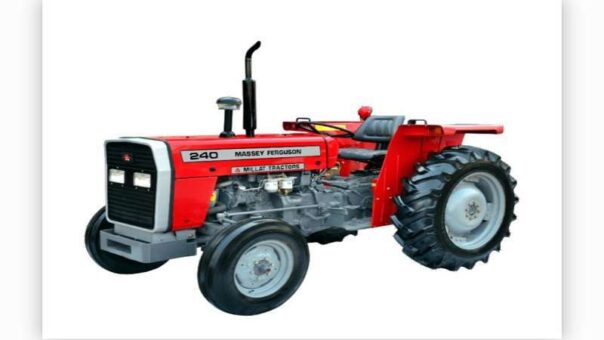KARACHI: Millat Tractors Limited (MTL) on Thursday announced production holiday on Fridays due to lower demand of tractors.
(more…)Category: Automotive
PkRevenue provides stories related to automotive industry. We focus on auto policy of Pakistan. The coverage also includes sales of domestic manufacturing.
-
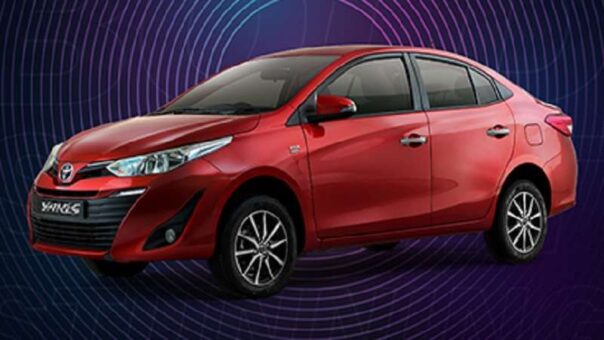
Price, specs of Toyota Yaris 2022 in Pakistan
Toyota Yaris 2022 was launched in Pakistan on March 15, 2020. The car is locally manufactured by Indus Motor Company Limited (IMC).
(more…) -
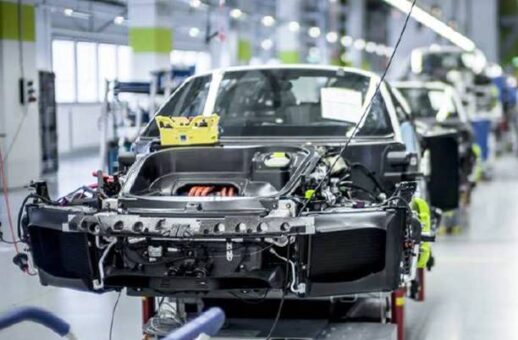
Pakistan’s passenger car sales drop 39pc in 5MFY23
KARACHI: Pakistan’s domestic car sales have recorded a drop of 39 per cent in the first five months (July – November) of fiscal year 2022-2023.
According to latest date released by Pakistan Auto Manufacturers Association (PAMA), the sales of passenger cars fell to 55,144 units in the first five months of the current fiscal year as compared with 90,303 units in the corresponding period of the last fiscal year.
READ MORE: Pakistan car sales increase 21 pc in October 2022
The sales of cars with engine capacity of 1,000 cc recorded major decline of 68 per cent to 6,987 units in the first five months of the current fiscal year as compared with 21,873 units in the same period of the last fiscal year.
Similarly, the sales of cars with 1,300CC and above engine capacity recorded 36 per cent decline to 24,465 units during the period under review when compared with 40,036 units in the corresponding period of the last fiscal year.
READ MORE: Pakistan car sales plunge 50% in 1QFY23
Meanwhile, the sales of cars below 1,000 CC recorded a decline of 20 per cent to 22,692 units during the first five months of the current fiscal year as compared with 28,394 units in the same period of the last fiscal year.
The sales of LCVs, vans and jeeps recorded a decline of 38 per cent to 11,314 units during the period of July – November 2022 when compared with 18,332 units in the corresponding period of the last fiscal year.
The car sales in the month of November 2022 recorded 39 per cent to 15,444 units when compared with 11,129 units in October 2022.
READ MORE: Pakistan car sales plummet by 50% on import restriction
Analysts at Arif Habib Limited attributed the recovery in sales volume on an MoM basis was mainly due to the fulfillment of the delivery of vehicles on the backlog of demand and consumers moving toward affordable vehicles resulting in PSMC sales climbing up by 74 per cent MoM.
They further attributed to streamlining production process by auto assemblers through improved inventory management processes and higher operating days.
However, further PKR volatility and increase in international commodity prices still remain a serious concern for the automobile sector.
They said 1,300cc segment and above showed a growth in sales by 22 per cent MoM. Given the sales of Civic and City went up by 10 per cent MoM. In addition, the sales of Corolla and Yaris portrayed a rise of 5 per cent MoM.
Alternatively, we observed a dip in 1,000cc segment sales by 2 per cent MoM, led by the rise in Wagon R sales whose sales went down by 7 per cent MoM to 718 units.
READ MORE: Pakistan car sales drop 59% in July 2022
Sales in the below 1000cc segment majorly contributed to the rise in sales 74 per cent MoM. The major contributor remained Alto which went up by 74 per cent MoM to 7,255 units.
Indus Motors sales went down by 4 per cent MoM, given sales of Fortuner and Hilux declined by 15 per cent MoM to 1,309 units.
Pakistan Suzuki sales depicted an increase of 55 per cent MoM as consumers switched towards affordable cars.
Honda Car sales surged by 38 per cent MoM, since the launch of HRV grabbed the attention of car enthusiasts and came into the limelight. With this, the overall BRV and HRV sales depicted a jump of 8.6x MoM.
During November 2022, the Tractors sales went down 34 per cent MoM, majorly contributed by AGTL, whose sales went down by 65 per cent MoM. In addition, MTL sales went down by 27 per cent MoM.
-
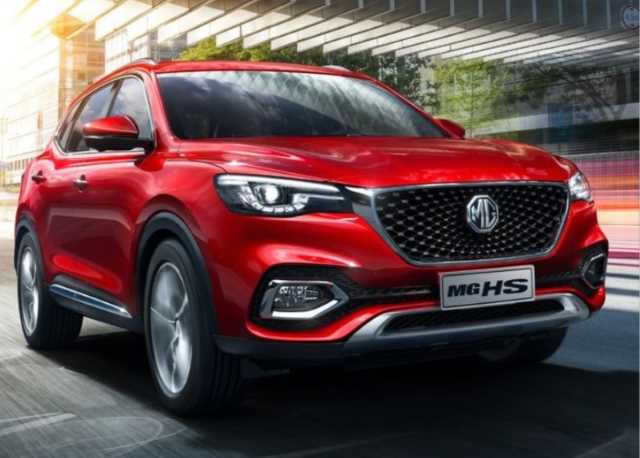
Price, specs of MG HS 2022 in Pakistan
Morris Garage (MG) HS 2022 was launched in Pakistan on December 10, 2022. The car is locally manufactured by MG Motors Pakistan under the variant name ‘Essence’.
The ex-factory price of MG HS 2022 is PKR 6,899,000. The SUV is available in colors including Arctic White, Black Pearl, Brixton Blue, Farringdon Red and White Pearl.
MG HS is equipped with 4 cylinder inline petrol engine of 1490 cc which generates a maximum power of 119/5600 kW/rpm at a maximum torque of 250/4400 Nm/rpm.
There is stardust grille on the front of vehicle, having a big logo at center. The car features two LED headlamps along with the LED daytime running lights (DRLs). In addition the SUV is also occupied with the fog lamps and auto lighting features.
The rear part of the car has rain wipers introduced with rain sensors. The vehicle also features welcome lights and a shark fin antenna. The top of the car has a panoramic sunroof and comes with a power tailgate.
MG HS 2022 is available in three interior colors including black, red and beige. The car offers comfortable interior with polyurethane and PVC wrapped seats. The car supports keyless entry and has a smart key.
The driver’s seat can be adjusted in different ways. Likewise the front passenger seat is manually adjustable in four ways. There are armrest at the front with cool box storage facility. Similarly the rear of SUV also has armrest with cup holders.
The power sensitive steering wheel contains visual instrumental panel. The dashboard obtains 10.1- inch infotainment display, which supports color radio, navigation system, Bluetooth connectivity and smartphone connectivity. The front screen also displays information of rear parking distance sensors.
The additional features of MG HS include MG Pilot. It is diver’s assist feature comprising of adaptive cruise control, automatic emergency braking, intelligent speed assist system, lane departure warning, traffic jam assist, intelligent cruise assist, front collision warning, blind spot detection system, lane change assist, and rear cross traffic alert.
The company conducted a survey, and updated the locally assembled SUV in accordance with feedbacks. The car’s Automatic Emergency Braking and Intelligent Speed Assist System have been disabled, while the other options of MG Pilot are maintained. Pakistan maps have also been enabled in the new HS Essence.
-
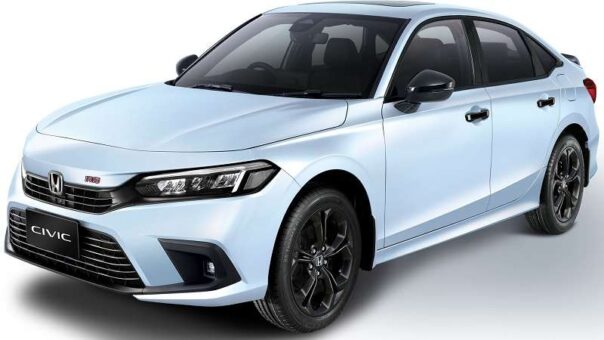
Price, specs of Honda Civic 2022 in Pakistan
Honda Civic 2022 was launched in Pakistan on March 05, 2022. The car is introduced in three variants Honda Civic Standard, Honda Civic Oriel, and Honda Civic RS.
The ex-factory price of Honda Civic Standard is Rs6,849,000, the price of Civic Oriel is Rs7,099,000, and the price of Civic RS is Rs8,099,000. The car is currently assembled by Honda Atlas in Pakistan.
The vehicle is introduced in variety of colors including Carnelian Red Paint, Urban Titanium Metallic, Taffeta White, Lunar Silver Metallic, Meteoroid Gray Metallic, Morning Mist Blue Metallic, and Crystal Black Pearl.
Civic 2022 contains DOHC dual VTC and VTEC engine with displacement of 1498cc. The engine in Civic Standard and Civic Oriel generates a maximum output of 95/5500-6000 kW/rpm at a maximum torque of 180/1700-4500 Nm/rpm.
The engine in the Civic RS generates a maximum output of 131/6000 kW/rpm at a torque of 131/6000 Nm/rpm.
READ MORE: Price, specs of Hyundai Sonata in Pakistan
The variants of Civic Standard and Oriel have come with M-CVT transmission whereas the RS variant has come with LL-CVT transmission.
The exterior design of the car gives it a sporty look. The car contains features which are halogen headlamps, halogen fog lamps and daytime running lights with auto off timer.
Further features are smart key-less entry, multi-function steering wheel with 4-way adjustments, 16-inch alloy wheels, climate control, rear AC vents, push start, electric parking brake with auto brake hold.
Civic Oriel contains LED fog lamps, dual-zone climate control, 9-inch multimedia system with voice recognition and sunroof.
The safety features of Civic Standard and Oriel are airbags, ABS with EBD, Vehicle Stability Control, Traction Control, Hill Assist Control, Cruise Control, engine immobilizer and rear view camera.
The RS variant contains all previous features along with some extra features which are Honda Sensing driver assistance system including Collision Mitigation Braking System, Lead Car Departure Notification System, Road Departure Mitigation System, Adaptive Cruise Control, Lane Keep Assist and Traffic Sign Recognition.
-
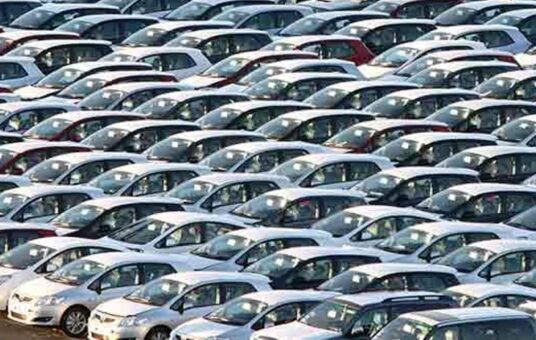
Pakistan Customs to auction Toyota, Suzuki motor cars on Dec 14
ISLAMABAD: Pakistan Customs has announced auction Suzuki and Toyota motor vehicles, which will be held on December 14, 2022 at Sukkur.
Following is the list of auction of vehicles lying in State Warehouse, Sukkur to be held on December 14, 2022:
01. Suzuki Kie Car, bearing Registration No. Without Number, Chassis No.HZ22S-675401, Engine No.K6A, Model 2006.
READ MORE: Non-filers will not be included in ATL 2022
02. Toyota Aqua Car, bearing Registration No.BJU-862, Chassis No.NHP10-6298404, Model 2014 and Engine Capacity 1490 CC.
03. Toyota TZ Prado Jeep, bearing RegistrationNO.BD-8408 (Sindh), Chassis No.JTEBU25J005029572, Model 2005 (as per japani website) and Engine Capacity 4000 CC.
04. Toyota Prius Car, bearing Registration No.BGH-417, Chassis No.ZVW30-1358220, Engine No.2ZR-1230757, Model 2011 and Engine Capacity 1797 CC.
05. Toyota Axio Saloon Car, bearing Registration No.AXJ-090, Chassis No.NZE141-6015839, Engine No.1NZ-C484965, Model 2009 and Engine Capacity 1490 CC. (As per Running Page).
READ MORE: FBR directs BS-21 officers to submit declaration of assets
06. Toyota Corolla Fielder Car, Bearing Reg. No.BPU-210, Chassis No.ZZE122-0010909, Engine No.IZZ-FE, Model 2000 and Engine Capacity 1800 CC.
07. Suzuki Swift Car, Bearing Reg. No.LED-1475 (Pujab), Chassis No.ZC11S-107422, Model-2004, (as per Japani website) and Engine Capacity 1298 CC.
08. Toyota Premio Car, bearing Registration No.BEZ-654 (Sindh), Chassis No. AZT240-0021231, Model 2005-06 (as per japani website) and Engine Capacity 2000 CC.
09. Suzuki Swift Car, bearing Registration No.AZK-119, Chassis No.ZC11S-157917, Engine No.M13A, Model 2009 and Engine Capacity 1248 CC.
READ MORE: Customs Intelligence Gwadar auctions motor vehicles on December 12
10. Toyota Prius Car, Bearing Reg No.BAT-685, Chassis No.ZVW30-5064179, Model-2009 (as per japani website and seat belt) and Engine Capacity 1800 CC.
11. Toyota Prius Car, Bearing Reg No.BAW-474, Chassis No.ZVW30-1041423, Model-2009 and Engine Capacity 1800 CC
12. Toyota Vitz Car, Bearing Reg No.ALT-499, Chassis No.SCP13-0026906, Model-2003 and Engine Capacity 1297 CC.
READ MORE: Separate property declaration under Section 7E only for returns already filed
13. Toyota Surf Bearing Reg No.U-2683, Chassis No.KZN130-9039907, Engine No.1KZ0189302, Model-1994, and Engine Capacity 2982 CC.
14. Suzuki Swift Car, Bearing Reg No.AWX-616, Chassis No.ZC72S-101701, Model-2012.
-
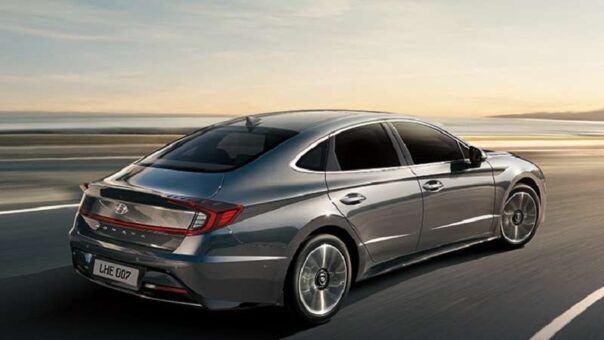
Price, specs of Hyundai Sonata in Pakistan
Hyundai Sonata was launched in Pakistan on July 06, 2021. The car is introduced with two variants Hyundai Sonata 2.0 and Sonata 2.5.
The ex-factory price of Hyundai Sonata 2.0 is Rs8,149,000 and the price of Sonata 2.5 is Rs8,899,000. The car is currently assembled by Hyundai Nishat in Pakistan.
The vehicle is introduced in variety of colors including Hampton Gray, Metallic Silver, Polar White, Diamond Black Metallic, and Oxford Blue.
The engine power of both variants is different. Hyundai Sonata 2.0 has a2000cc engine that generates a maximum power of 152/6200 Hp/Rpm at a maximum torque of 192/4500 Nm/Rpm.
The Hyundai Sonata 2.5 comes with a 2500cc engine, which generates a maximum power of 180/6000 Hp/Rpm at a maximum torque of 232/4000 Nm/Rpm. Both the variants are 2WD with 6-Speed Automatic Transmission.
The car contains five distinct driving modes for comfort. These include ECO mode, Comfort mode, Custom mode, Smart mode, and Sport mode.
The car is launched with safety features such as Hill Start Assisst Control, Electronic Stability Control, Auto Brake Hold, Electronic Parking Brake, Child ISOFIX Seat Anchors, and ABS with BA and EBD.
Sonata projects sensuous sportiness which serves as guiding concept throughout Sonata’s development.
The car has a striking presence achieved through a harmonized balance between proportion, architecture, styling and technology. Every curve and every bend add to the premium accent of the car.
The rear design contributes more towards the beauty of car. The connected LED Rear lamps incorporated with rear air fins creates a unique style and enhances aerodynamic performance.
The rear bumper design and extended LED lights provides a broad stance, giving Sonata its perfect blend of sporty and classy look.
Sonata contains new and improved powertrains mated to a six-speed automatic gearbox. Gear selection is controlled by a new shift-by-wire selector that makes for safer, more precise and fool-proof gear changes and its smaller footprint clears up valuable space on the center console.
This same push-button convenience is brought to the electronic parking brake which comes with auto-hold that allows the driver to remove his foot from the brake pedal during stops to relax the leg muscles while maintaining brake pressure.
-

Customs Intelligence Gwadar auctions motor vehicles on December 12
Directorate of Customs Intelligence and Investigation, Gwadar announced auction of motor vehicles to be held on December 12, 2022 at Custom House, Gaddani.
The directorate will hold auction of following vehicles:
01. Toyota Surf Jeep, Chassis No. GRN215-8110039, Model 2009(4000CC).
READ MORE: Separate property declaration under Section 7E only for returns already filed
02. Toyota Aqua Car, Chassis No. NHP10-6390841, Model 2015 (1498CC).
03. Suzuki Swift Car, Manual Transmission, Chassis No. JSAEZC21S00159325, Model 2005 (1328CC).
04. Toyota Crown Car, Chassis No. GRS204-0007715, Model 2008 (3500CC).
05. Toyota Axio Car, Chassis No. NZE141-6172214, Model 2010 (1496CC).
READ MORE: Tax on deemed income from immovable property under Section 7E
06. Charoki Jeep, Chassis No. ICRNJCDA8ED910227, Model 2014.
07. Daihatsu Mira Car, Chassis No. LA300S-0022280, Model 2012 (658CC).
08. Toyota Premio Car, Reg No. BFF-347, Chassis No. ZZT240-0126406, Model 2006 (1794CC).
09. Toyota Axio Car, (Rusted/Poor Condition), Chassis No. NZE141-6167564, Model 2010 (1496CC).
10. Daihatsu Mira Car, Chassis No. LA300S-1403990 (after lab Chassis No. LA300S-1194471), Model 2013 (658CC).
11. Toyota Land Cruiser Cygnus Jeep, Chassis No. UZJ100-0155558 (without Tikli), Engine No. not traceable, Model 2005 (4700CC).
READ MORE: Supreme Court discourages taxpayers seeking relief in show cause notices
12. Toyota Axio (G) Car, Chassis No. NZE141-6007549, Model 2006 (1496CC).
13. Toyota Mark-X Car (Roof/Pillar cut and weld accident condition without bonet, digi, doors, head/brake lights, seats, dashboard and wirings etc.), Chassis No. GRX130-6113354, Engine No. not available, Model 2019 (2499CC).
14. Suzuki Alto Car, Chassis No. HA36S-32887, Model 2017 (658CC).
15. Land Cruiser Cygnus Jeep, Chassis No. UZJ100-0158482, as per Chassis Tikli No. UZJ100-0143249, Engine No. 2UZFE, Model 2006 (4663CC).
16. Honda Bike (not in running condition), Chassis No. JH2SC3309WM200493, Engine No. SC33E-2203890, Model 1998.
READ MORE: Member Customs assures swift clearance of export consignments
-
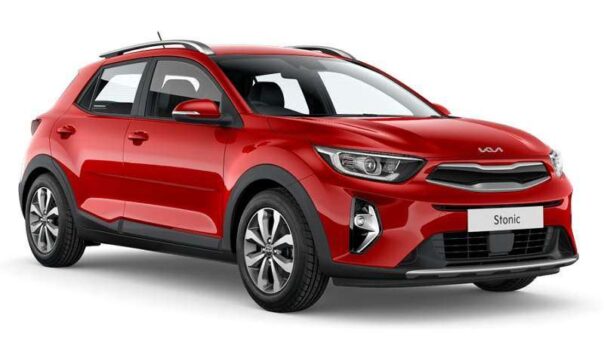
Price, specs of KIA Stonic 2022 in Pakistan
KIA Stonic 2022 was launched in Pakistan on November 08, 2021. The car is introduced with two variants Stonic EX and EX+.
The ex-factory price of KIA Stonic Ex is Rs4,545,000 and the price of Ex+ is Rs4,848,000. The car is currently assembled by Lucky Motors in Pakistan.
KIA Stonic EX and KIA Stonic EX+ is equipped with 1.4L petrol engine. The 6-speed automatic transmission engine generates 99 horsepower at 6,000 rpm and 133 Nm at 4,000 rpm to give optimum performance for these front-wheel drive vehicles.
The car is introduced in variety of colors including, sparkling silver, panthera metal, mercury blue, clear white, cherry black and sporty blue.
The vehicle features dynamic sporty appearance at the front with 3-dimensional shape of grille, vertical fog lamp housings and integrated full Bi-Function Projection Halogen with powerful Daytime Running Lights.
The Stonic EX comes with a matte black grille while the EX+ comes with one in piano black. It has LED daytime running lights in all of its variants but the front and rear fog lights are only available in the usual bulb in both variants.
Both the variants of the vehicle have fuel consumption of 12km/l in the city and 16km/l on the highway.
The aerodynamic design of all Stonic 2022 variants directs airflow towards the engine and wheel wells for better stability at high speeds. The EX comes with 15-inch alloy rims and the EX+ comes with 16-inch alloy rims.
Some special functions of KIA Stonic EX+ include the cruise control function, manual speed assist, and the push-button start/stop feature. The EX+ also comes with forward and reverse Park Assist Sensors.
Both the models have Vehicle Stability Management which ensures maximum security by maintaining the stability and balance of the car.
The Hill Start Assist further improves the driving experience on steep roads. The Anti-Lock Braking system helps provide better handling on slippery paths.
The modern feature of single-zone climate control also helps maintain the internal climate of the vehicle stable.
-
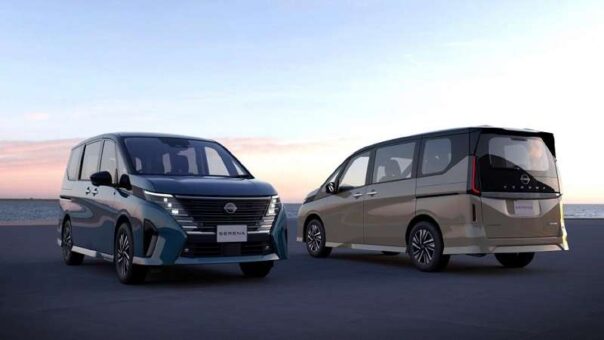
Nissan launches all new redesigned Serena
YOKOHAMA: Nissan launched all new redesigned model of Serena in Japan. The car features second-generation e-POWER system which is equipped with1.4 L engine. The system delivers more powerful and smooth acceleration with less engine noise.
The sales of Serena will be started from December, and e-POWER variant will be started from next year.
The price of car starts with 2,768,700 yen . The price of e-POWER model starts with 3,198,800 yen. The first model of Serena was launched in 1991 featuring the concept from the beginning being “Big, Easy, Fun”.
The Serena is equipped with spacious seating, convenient utilities and the latest in cutting-edge technologies.
The proPILOT 2.0 advanced comes on highest e-POWER grade namely “Luxion”. It is a system that enables hands-off driving in a single lane on a highway at speeds of 40 km/h or above.
The Luxion is equipped with ProPILOT Park with memory, which records and recognizes parking space lines, marking the first time this technology has been adopted on a Nissan vehicle. The Luxion also has ProPILOT remote park.
Steering assist with forward collision avoidance supports steering when avoiding obstacles in front of the vehicle. This technology is also first in the Nissan productions.
The Serena is equipped with world’s first energy management technology that controls power supply when engine turns on and off in accordance with vehicle speed, traffic conditions and the navigation system. The reduced engine operation contributes to a quieter cabin.
Various design and packaging approaches have been taken with aim of reducing motion-sickness. These include, wide, open view from inside of vehicle and an optimal display monitor positioning. The vehicle is equipped with new seat design that dampens occupant movement.
The car features highly rigid steering wheel which enhances handling stability. The vehicle is crafted in such structure that deflects crosswinds and reduces shakiness at high speeds.
The second-generation e-POWER system and tighter suspension enable smoother vehicle body movement. Close attention has been given to interior:
Moreover, the car also features interior updates such as the windshield in the car which is the widest in the minivan category in the market. Serena features a switch-type shift for smart looks and ease-of-use.
The seat material is water-repellent, a family friendly feature. The most spacious cabin in the minivan category enables all on board to stretch out and relax. The car has 120 mm of additional driver legroom compared to previous model of Serena.
The car is equipped with multi-purpose center seat in the second row allows the vehicle to carry seven or eight passengers.
The dual rear door allows easy loading and unloading, even in small parking spaces. The small back door at the top can be used when needed. The side passenger door comes with the hands-free, auto-open function.
Air conditioning can be controlled by a simple, intuitive and innovatively designed touch panel, with independent controls for driver’s seat, passenger seat and rear seats.
An optional 100V AC power source (1500 W) is available for e-POWER models, which can be used to operate electric appliances when outdoor or as a power source, especially helpful in emergencies.
